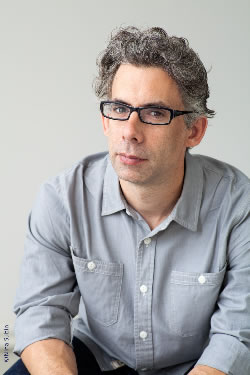|
To know a character, I have to understand what they want and what they've lost. I'm interested in how people are vulnerable, how they cope with trouble, how they interact with those closest to them. If I feel out to sea with a character, if the life on the page feels too remote or distant, I just exact more pressure. Pressure reveals character, especially when the characters react in ways completely opposite to how the author would. I aim to put the people in my stories in a vise that tightens with every page until either the character or the vise breaks.
This goes back to what we were talking about before, how characters reveal themselves. What most interests me is surprise, discovering a capacity for something—tenderness, violence, duplicity, hope—within a character that I didn't expect to find. For me, this is profoundly different and infinitely more compelling than a character who "changes." I'm not one of these folks who believe that stories are always about change or that there needs to be a Joycean epiphany three-quarters through a short story. In fact, such rigidness smacks a little of hogwash to me. So often the so-called changes in characters feel manufactured, crowbarred into the plot.
When the "change" feels beautiful and natural and, to invoke the workshop term, "earned," I think it's because the character has confirmed what we've hoped or suspected all along. Maybe the character hasn't changed at all, but rather has finally been put in a situation where her truest self can be revealed. For example, what if the narrator in Carver's "Cathedral" has always been capable of empathy, but he's never been able to open himself up until the blind man comes for a visit. Stories, to my mind, are never about change. They are always and only about the possibility of change. And that possibility for change resides as much in the reader as in the characters. What reader isn't different after reading a story by Carver or Joyce or Munro?
|


